Calendar of former official provides insight into SEC regulatory intent, Satoshi stumble
Hinman’s agenda, obtained by Fox Business, details meetings from his nearly four-year tenure at the SEC
Charlie Gasparino: Tim Draper and the SEC got 'punked'
FOX Business senior correspondent Charlie Gasparino explains whether venture capitalist Tim Draper knows the true identity of Satoshi Nakamoto, the developer of Bitcoin on 'The Claman Countdown.'
The meeting schedule of a former official of the Securities and Exchange Commission provides a detailed roadmap into the agency’s thinking as it began to weigh how best to reign in the burgeoning digital-asset business, but it could also buttress the growing sentiment that Wall Street’s top cop unfairly targeted a leading crypto outfit in its crackdown.
The itinerary of former SEC Director of Corporation Finance William Hinman hasn’t been reported before, and it shows the SEC casting a wide net in seeking advice from key crypto officials, including the person they thought was crypto’s founding father, the elusive Satoshi Nakamoto, FOX Business has learned.
From 2017 through 2020, Hinman was at the center of the agency’s crypto regulation efforts under former SEC chair and Trump appointee Jay Clayton. During those years, the commission began to navigate its regulatory authority over the business, which was growing exponentially and posing problems for government officials worried the anonymous nature of the blockchain would finance illicit activities.
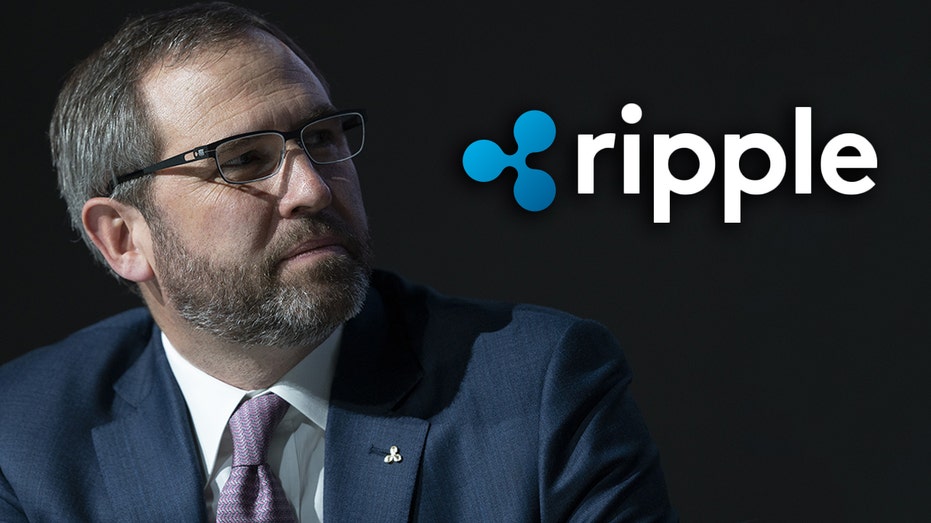
Brad Garlinghouse, chief executive officer of Ripple Labs Inc., attends a panel discussion at the Singapore FinTech Festival in Singapore, on Monday, Nov. 12, 2018. The festival runs through Nov. 16. (Wei Leng Tay/Bloomberg via Getty Images / Getty Images)
RIPPLE CEO SAYS LANDMARK LAWSUIT WILL BE DECIDED BY A JUDGE
Hinman’s agenda, obtained by FOX Business, covers, with some redaction, his nearly four-year tenure at the SEC, although it is unclear whether the documents provide a complete account of his daily engagements while serving as Corporation Finance Director. The documents were turned over to XRP investors Stuart Young and Andrew Forbes as part of a Freedom of Information Act request they submitted earlier this year.
Both men are part of a class-action lawsuit filed against the SEC in a federal court in the Southern District of New York.
The class action takes issue with one of the SEC’s largest crypto enforcement actions to date: Its December 2020 case against Ripple Labs over what the SEC contends is the company’s unregistered sales of XRP tokens to investors.
The Ripple case culminated a frenzy of crypto enforcement activity by the Clayton SEC, which brought 87 cases, mostly against outfits that failed to register their digital coins with the commission. In late 2020, on Clayton’s final day as SEC chair, the SEC sued Ripple and its top executives in a Manhattan federal court for selling XRP to investors as an unregistered security.
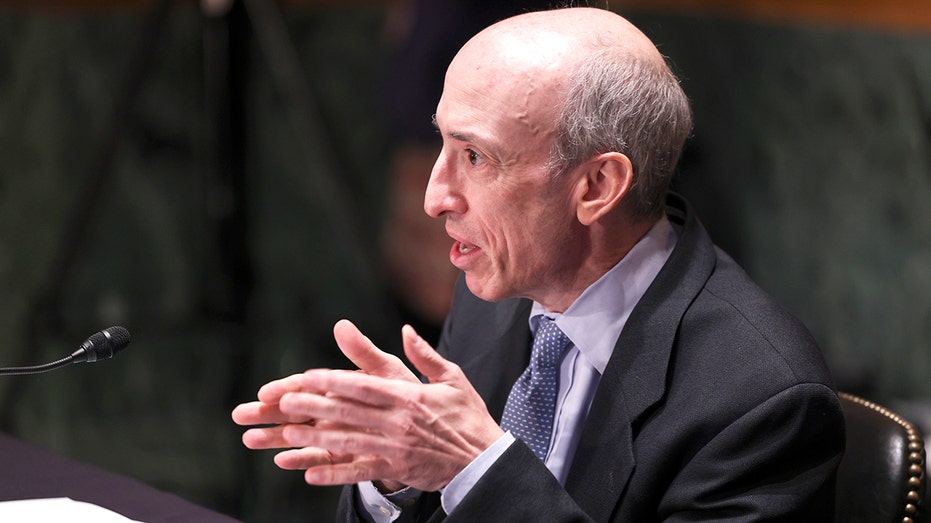
The Securities and Exchange Commission is studying ways to make it more feasible for cryptocurrency trading platforms to register with the agency as exchanges, Chairman Gary Gensler said Monday Apr. 4th 2022. (Evelyn Hockstein-Pool/Getty Images / Getty Images)
Ripple vehemently denies the charges, stating that XRP is not a security, but rather, a currency similar to rivals bitcoin and ether. Like them, it is used to facilitate payments on a decentralized platform. Ripple continues to fight the case now being litigated by lawyers under President Biden’s SEC chair, Gary Gensler.
While the outcome of the Ripple case remains uncertain, industry observers say the decision will likely shape the future of crypto enforcement. An SEC victory could give the agency carte blanche in regulating digital coins, meaning other unregistered cryptos like Ethereum’s ether could face similar scrutiny.
A loss would impose limits on how much the SEC can crack down on tokens it believes are in violation of law.
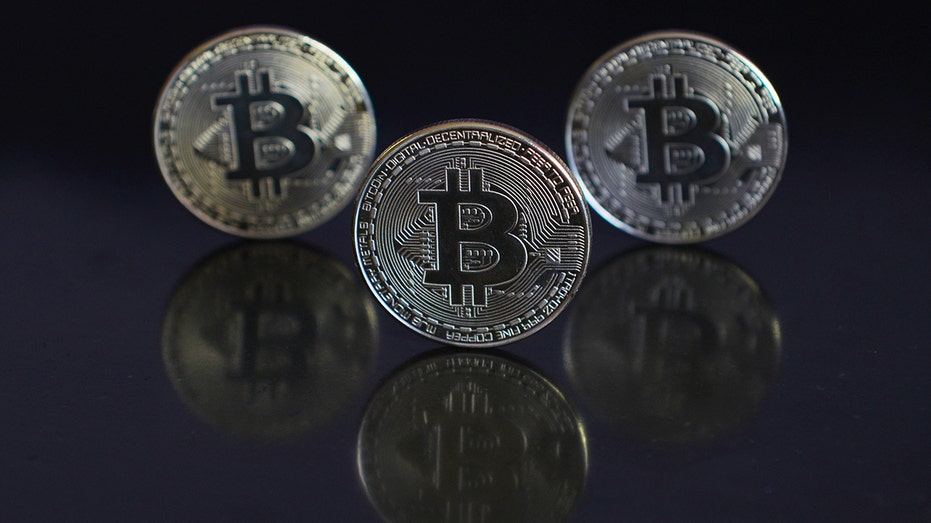
The cryptocurrency industry has aggressively lobbied Washington lawmakers and policy makers over the past year to avoid falling within the SEC’s jurisdiction. (Sheldon Cooper/SOPA Images/LightRocket via Getty Images / Getty Images)
The class-action suit, led by a Providence-based lawyer John Deaton on behalf of 74,000 XRP holders including Forbes and Young presents another potential challenge to the SEC’s ability to regulate the digital-coin business.
It alleges the SEC wrongfully harmed XRP holders by improperly classifying all their sales as securities transactions because investors bought their coins on the secondary market, unrelated to Ripple actions. Moreover, XRP holders suffered significantly from the SEC’s action; the value of XRP dropped 70% after the Ripple lawsuit and the coin can’t trade on US-based crypto exchanges.
Maybe the most controversial part of the class-action suit involves what the XRP holders believe is the SEC’s motivation in suing Ripple. XRP holders contend the SEC met regularly with industry officials associated with XRP’s biggest competitor, ether, to discuss crypto industry regulation. Hinman’s schedule entries serve as evidence the commission was playing favorites, they say, as does the name of another big XRP competitor listed, the aforementioned Satoshi Nakamoto of Bitcoin, FOX Business has learned.
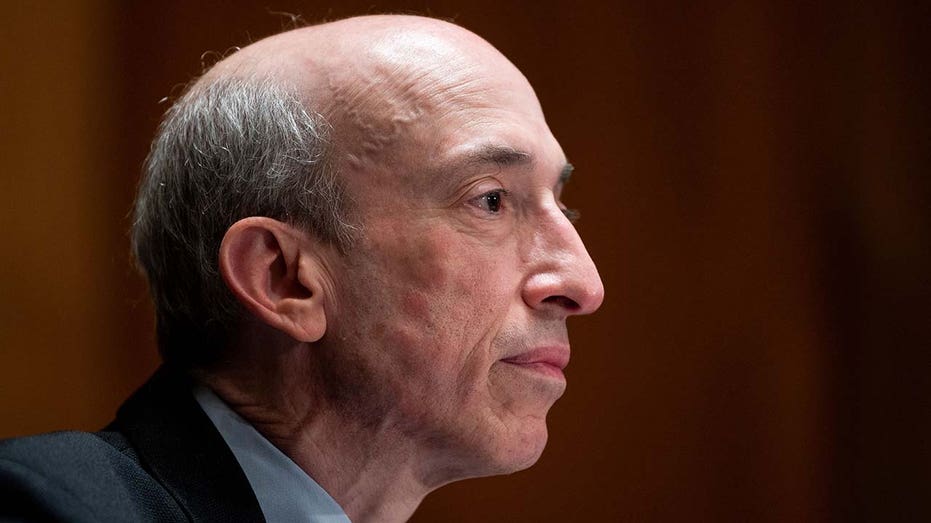
Gary Gensler,Chair of the Securities and Exchange Commission(SEC), testifies during the Senate Banking, Housing, and Urban Affairs Committee hearing on "Oversight of the US Securities and Exchange Commission" on Sept. 14, 2021 in Washington,DC. (BILL CLARK/POOL/AFP via Getty Images / Getty Images)
Both Hinman and Clayton, the suit states, are now in private practice and are advisers to entities that invest in bitcoin and ether, and were possibly swayed into filing civil charges against Ripple by some of its competitors — charges both have categorically denied. But XRP holders say details of Hinman’s meeting schedule indicate that purveyors of rival digital coins had a hand in the agency’s regulatory decision-making.
"The calendar entries demonstrate that Ethereum founders and investors had exclusive access to the leadership at the SEC," Deaton told FOX Business. "It was a very exclusive club and Ripple and XRP were not in it."
SEC officials declined to comment, and both Hinman and Clayton have said their decision to file charges against Ripple was based purely on the law; Ripple officials sold XRP much like a stock or bond to enrich themselves and enhance the operations of their business and without filing the necessary paperwork with the commission like other companies that raise capital.

Brad Garlinghouse, chief executive officer of Ripple Labs Inc., attends a panel discussion at the Singapore FinTech Festival in Singapore, on Monday, Nov. 12, 2018. The festival runs through Nov. 16. Photographer: Wei Leng Tay/Bloomberg via Getty Ima (Wei Leng Tay/Bloomberg via Getty Images / Getty Images)
FOX Business could not determine exactly what was discussed at the meetings described in Hinman’s schedule, but one thing is certain: They took place during a key period of time when the SEC was debating how best to regulate the crypto industry and was preparing a crackdown on what it viewed as illegal digital coins.
According to Hinman’s schedule, Ripple and its counsel met with SEC officials once in June of 2018, three times in 2019 and twice again in 2020, one meeting occurring just days before the agency filed its lawsuit against the company. A Ripple spokesperson had no comment.
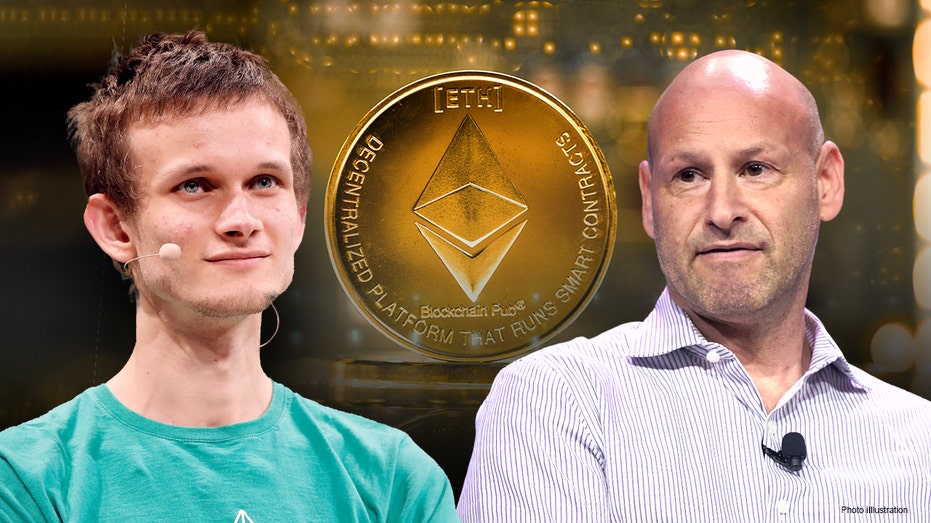
Founder of Ethereum Vitalik Buterin during TechCrunch Disrupt London 2015 - Day 2 at Copper Box Arena on December 8, 2015 in London, England. (John Phillips/Getty Images for TechCrunch | Riccardo Savi/Getty Images for Concordia Summit | istock / Getty Images)
But the schedule indicates Hinman met people associated with Ethereum far more frequently — four times between 2017 and 2018, and possibly more. On March 29, 2017, for example, Hinman had scheduled a meeting with ConsenSys, a technology company that runs exclusively on the Ethereum blockchain. The entry did not list the names of any executives involved in the meeting.
Other entries did. ConsenSys was founded by Joe Lubin, one of the co-founders of the Ethereum blockchain. Lubin and Hinman held a virtual meeting on April 23, 2017, the schedule shows. There were two more meetings, one with the General Counsel of ConsenSys and another with unnamed members of the company in April of 2018, the schedule shows. A press official for ConsenSys didn't respond to requests for comment.
In 2018, two other entries on Hinman’s calendar cite SEC staff meetings regarding ether but don’t mention specific names.
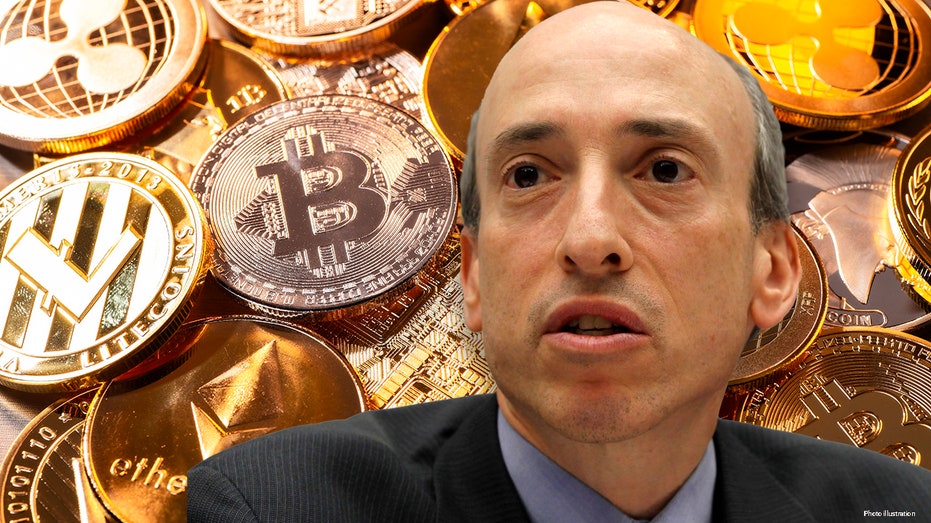
Frankfurt, Hesse, Germany - April 17, 2018: Many coins of various cryptocurrencies (iStock/Reuters)
Also, in Hinman’s calendar around this time, was an entry for a meeting with a more high-profile XRP competitor. An August 23, 2017 entry lists a "11a.m. – 12 p.m. meet w- Satoshi N and Tim Draper room 5000 at HQ…"
Satoshi Nakamoto, of course, is one of crypto’s most notable figures as the creator of bitcoin, today's most valuable digital coin. The long-elusive figure went missing from the cryptoverse more than a decade ago, leading many to believe the name is a pseudonym, or he’s a composite figure.
GET FOX BUSINESS ON THE GO BY CLICKING HERE
But the SEC thought they hit pay dirt when Draper, a well-known venture capitalist and crypto investor, called agency officials with potentially explosive news that he had solved the Satoshi riddle. The foremost expert on crypto was also willing to guide the SEC in its nascent regulatory efforts, former SEC officials involved in the matter tell FOX Business.
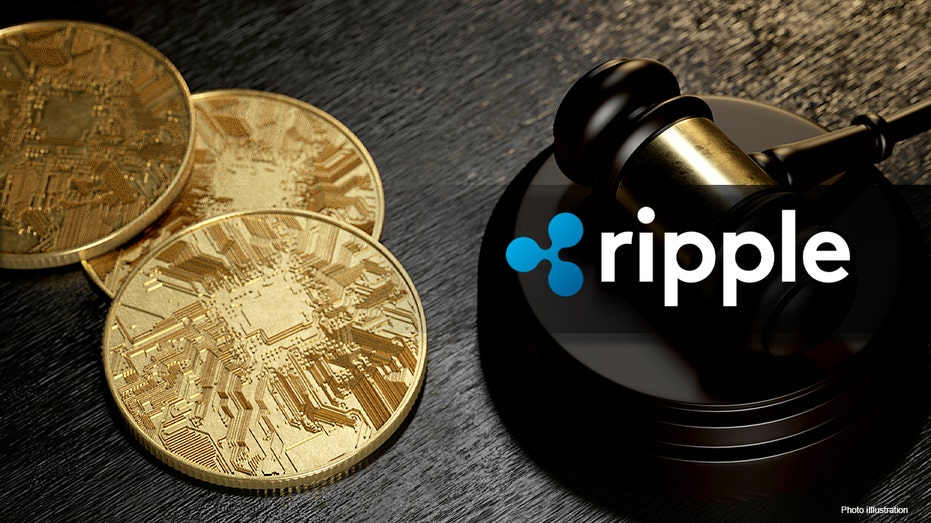
crypto concept: istock (istock / iStock)
SEC DENYING BITCOIN ETF APPLICATIONS MOSTLY DUE TO ‘LARGER POLITICAL AGENDA’: REPORT
SEC officials were said to be ecstatic. Precisely what made Draper or the SEC so confident that they had found the real Nakamoto is unclear. On Aug. 22 Hinman and his team held what is described in the meeting schedule as a "pre-meeting for Satoshi/Draper," the schedule shows.
The next day, according to former SEC officials, they held a conference call with Draper and the person believed to be Nakamoto, during which they discussed the alleged Satoshi’s views on bitcoin and the blockchain he created in 2008, said one former SEC official involved in the talks.
This former official said Draper’s Nakamoto talked "a good game," much of it about some mistakes he made in creating bitcoin and its network and how to fix them.
"The guy came across as if he wanted to do good things," said the former SEC official who was present. "Tim was convinced he was the real deal."
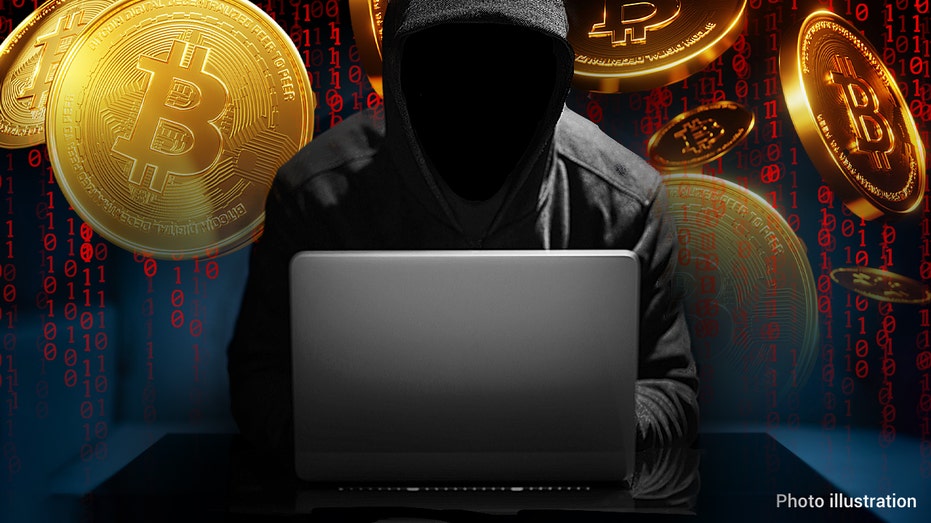
Satoshi Nakamoto, of course, is one of crypto’s leading figures as the creator of Bitcoin, today's most popular digital coin and its block chain platform. The long-elusive figure went missing from the cryptoverse more than a decade ago. (istock / iStock)
But when the meeting was over, the SEC decided to do a background check "to figure out who this guy was" and soon determined both they and Draper got punked by an imposter — a source of amusement and embarrassment inside one of Washington’s most prestigious law enforcement agencies.
"I remember hearing about this at a senior staff meeting that the guy was a fake," said another former SEC official. "We all started laughing."
Draper didn’t return emails for comment. On Aug. 25, 2017, two days after the Aug. 23 call, Draper tweeted, "I just got targeted by a Satoshi fake. He was very convincing and wasted a lot of my time. Could have been much worse. Watch out!"
The Verge, a tech publication, reported in 2017 extensively about Draper’s involvement with the fake Nakamoto on a possible crypto business venture. It also reported on the August 2017 meeting between Draper, his Nakamoto imposter, and SEC officials about the imposter’s proposal for an initial coin offering based on a new blockchain.
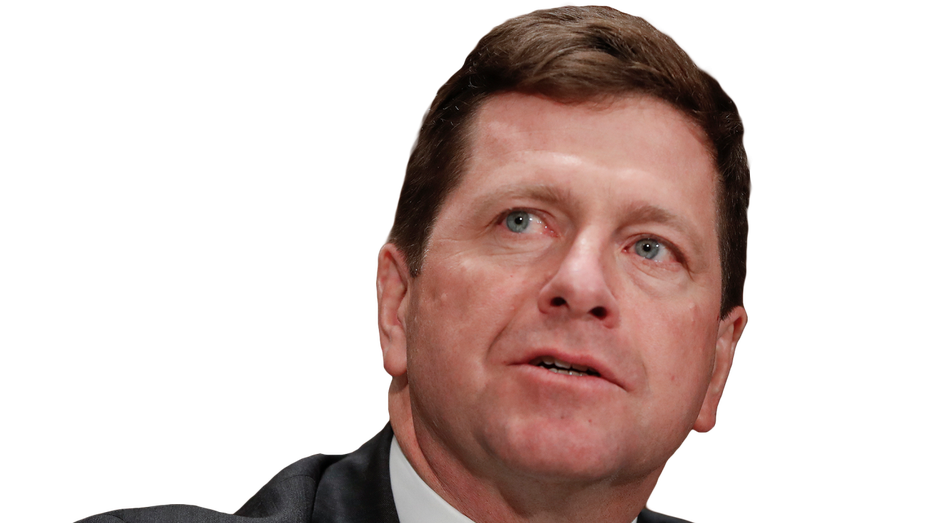
Jay Clayton headshot, as Securities and Exchange Commission (SEC) Chairman (AP Newsroom)
FOX Business is reporting new details on the internal SEC deliberations involving Draper and the man he believed created bitcoin.
Hinman, for his part, declined to comment for this report, as did Clayton. While meeting with a Nakamoto fake still evokes laughter among past and present SEC officials, XRP holders say it’s significant. The sheer volume of discussions with industry competitors could indicate how the agency was swayed to formulate a regulatory agenda that would come at Ripple’s expense and ultimately theirs, they say.
CLICK HERE TO GET THE FOX BUSINESS APP
The talks, for example, came just before Hinman gave a public address about the agency’s crypto regulatory agenda in June of 2018 at the Yahoo Finance All Markets Summit. During the speech, Hinman singled out bitcoin and ether as decentralized digital assets that don’t need registration, leaving open the possibility that scores of other cryptos could face SEC scrutiny.
A little more than two years later, the SEC filed the landmark case against Ripple that could be decided sometime next year.





















